Prolife
For over a decade among the most popular and most commonly prescribed prophylaxis for intestinal microflora regulation.
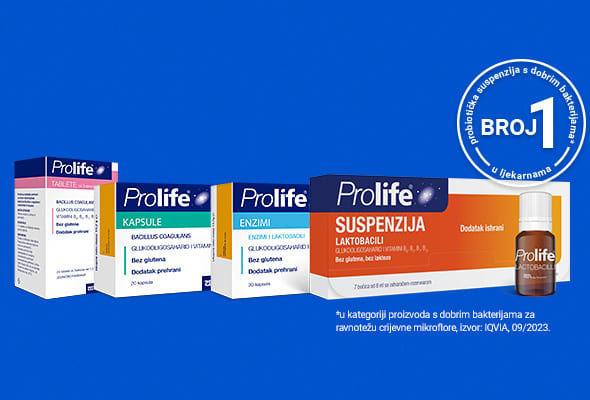
For over a decade among the most popular and most commonly prescribed prophylaxis for intestinal microflora regulation.

For over a decade, Prolife, the first probiotic launched by JGL, has been among the most popular and most commonly prescribed prophylaxis for intestinal microflora regulation, especially for diarrhoea. Prolife is a dietary supplement that contains live bacterial cultures, recommended doses of B group vitamins and glucooligosaccharide.
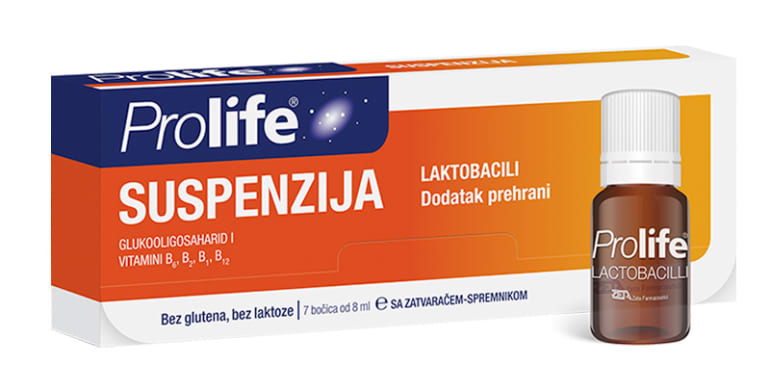
It contains 2 billion good bacteria, B complex and glucooligosaccharides.
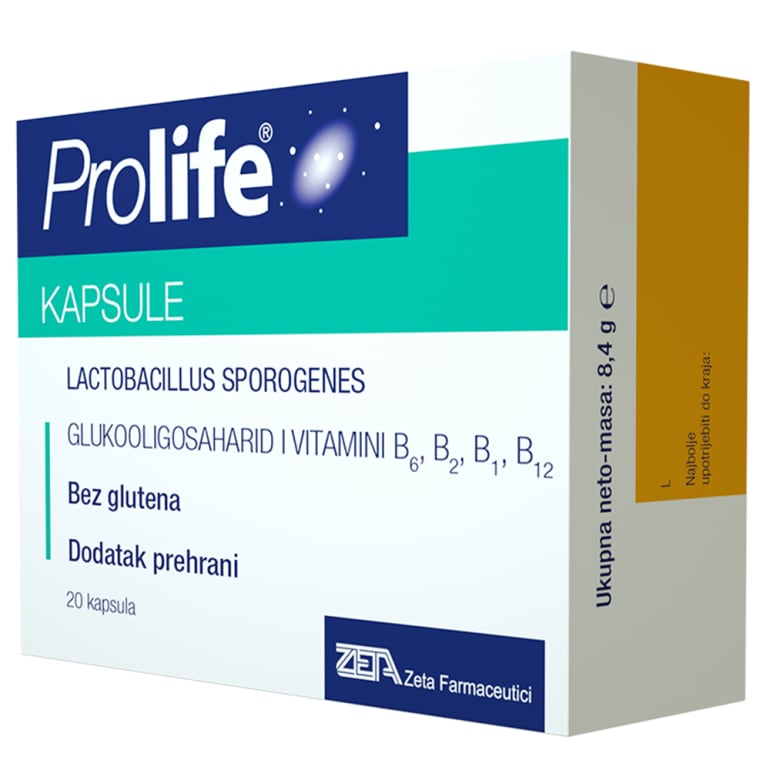
Ideal as a preventive care of the intestinal microflora and during antibiotic therapy.
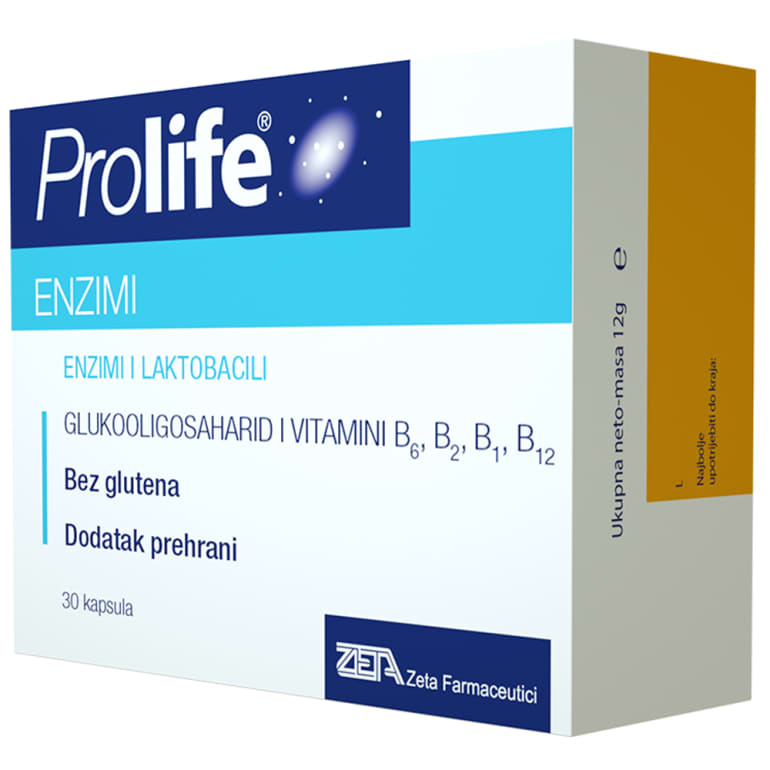
Ideal solution against bloating, abdominal pain and feeling of heaviness after a meal.
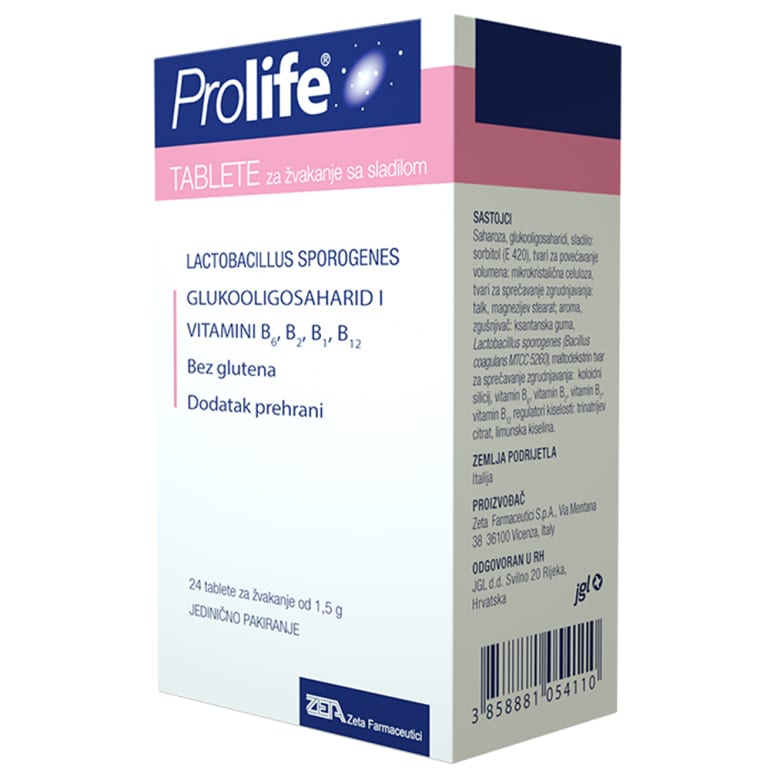
Chewable tablets, ideal for work and travel for easy consumption. They stop and prevent diarrhea, restore and protect the intestinal microflora.


Diarrhoea is usually caused by an imbalance in the intestinal flora or an increase in the number of pathogenic microorganisms such as rotaviruses and bacteria such as Clostridium difficile. With acute diarrhoea, therapy lasts up to several days, while in the case of chronic diarrhoea, it takes at least three weeks. This is a common problem and generally does not pose a health risk but can cause discomfort if not addressed on time.
Did you know that stress, anxiety and other psychosomatic causes can cause diarrhoea?

GERD most often occurs due to a dysfunction of the lower oesophageal sphincter (LOS), a muscle that closes the lower oesophagus and prevents the return of gastric content to the oesophagus, oral cavity and airways. The action of stomach acids irritates the oesophagus, oral cavity and airways, which leads to problems that can impair the patient’s quality of life.
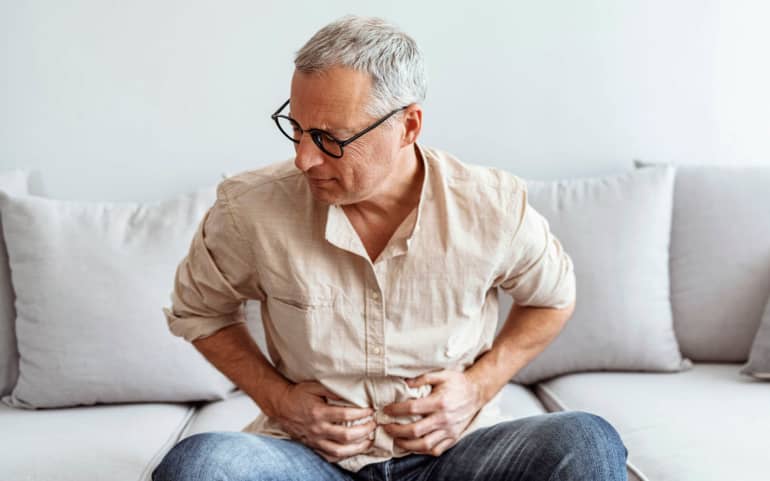
H. pylori is a spiral bacteria that can be found on the human stomach lining and is the most common cause of gastritis, a chronic inflammatory reaction of the stomach. Infection begins with the entry of bacteria into the digestive system, and if left untreated, in most patients it lasts a lifetime.

A peptic ulcer is an injury to the walls of the stomach, duodenum or oesophagus caused by the aggressive action of gastric juices. A typical symptom that indicates the presence of peptic ulcer disease is pain that occurs immediately after a meal (in case of gastric ulcers) or a few hours after a meal (duodenal ulcers).
Necessary cookies enable core functionality. The website cannot function properly without these cookies, and can only be disabled by changing your browser preferences.